1.5 Dietary Supplements
In the United States, the supplement industry is regulated by the federal government under the Dietary Supplement Health and Education Act (DSHEA). DSHEA was passed in 1994, provides a legal definition for dietary supplements, and specifies that the Food and Drug Administration (FDA) is the agency that oversees the supplement industry. A dietary supplement is defined as a food product, added to the total diet that contains at least one of the following ingredients:
- vitamin
- mineral
- herb or botanical
- amino acid
- metabolite
- constituent
- extract
- enzymes or tissues from organs or glands
- or any combination of these ingredients
Even though supplements are explicitly defined as a “food product”, the law also states that dietary supplements are not intended to be used as a conventional food or the sole item of a meal or diet, they are supposed to “supplement” a healthy diet, and they must be labeled as a supplement. Keep this in mind the next time you see supplements being marketed as “meal replacements” or an online company selling you expensive shakes and pills to use in place of real food. Dietary supplements include essential nutrients such as vitamins and minerals (and multivitamins) but also other nonessential substances such as papaya enzymes, echinacea, and other herbs. The supplement industry in the United States is a multibillion-dollar industry. Approximately 57.6% of American adults report using dietary supplements (3). Multivitamin or mineral products, vitamin D, and omega 3 supplements are the most commonly used supplements; however, a large portion of supplement users are individuals looking to lose weight or athletes looking for a competitive advantage.
Because supplements are categorized as “food”, regulation of the supplement industry in the US is minimal and is considered a “buyer beware” market. Some supplements, such as vitamins, minerals, and certain herbs provide health benefits. However, many people get enough of these nutrients from the foods they eat and don’t gain any additional benefits from supplementing with vitamins or minerals. Other supplements offer no benefit and may actually be harmful. It is important to understand that the law regulating supplements does not ensure either safety or effectiveness. Under the DSHEA, the Food and Drug Administration (FDA) oversees the supplement industry. However, because supplements are regulated under food law (as opposed to drug law) the supplement manufacturer does not have to receive authorization from the FDA before they can sell their products. Products that are regulated under drug law (prescription drugs, over the counter drugs, vaccines, etc.) must be extensively tested for safety and effectiveness and the results of these tests must be submitted to the FDA for approval. We’ve all seen this process play out over the last few years with the various covid vaccines. Products regulated under drug law are also rigorously tested for appropriate dosing for different populations. It’s important to recognize that supplements are not required to undergo this same process. Research on sports supplements is often conducted at different doses than what the manufacturer recommends on the packaging so even if you can find research supporting the use of a supplement, it’s important to check what dose was used and who the study population was.
In another technical nuance of the law, the FDA does not have the authority to require that supplements be approved for safety before they are marketed because food does not require testing. The supplement manufacturer is responsible for the safety of the product. However, the supplement manufacturer is not required to test its product before it is marketed nor is it required to prove that the supplement does what it claims to do. Ideally, the manufacturer should test their product for ethical reasons, but they do not need to submit proof that their supplement actually works so some supplement companies skip over this step as a cost saving measure. The manufacturer is also responsible for accurate labeling and purity of their product. But, once again, because manufacturers are not required to test for safety, effectiveness, or accuracy of ingredients, their product could contain any or none of the ingredients listed. In other words, any dietary supplement that appears on the market is presumed to be safe and in order to remove a supplement from the market, the FDA has to prove that it is unsafe or adulterated. Consumers can report adverse reactions and other product complaints to the FDA through this link.
Because the industry is so large, it is unknown how many supplements are mislabeled or impure. The FDA reports a disturbing trend of weight loss supplements that contain prescription drugs that were not disclosed on the label. Some of these products can be found here but this list should not be considered a comprehensive list of all supplements that are contaminated. The USDA maintains a database of supplements that have violated health fraud laws by claiming their products treat diseases, contain undeclared substances, contain unauthorized ingredients, or have other untrue or misleading claims. This is not a complete list of all supplements that have violated the law, just the ones that have been caught recently.
Athletes who participate in sports where random drug testing takes place need to be extra careful. Several studies have found banned substances in supplements commonly used by athletes. In the supplement industry, banned for sale is not the same thing as banned for sport. One example of this is the anabolic steroid DHEA. DHEA is a legal supplement and can be sold in the US. However, DHEA is a banned substance for athletes who are drug tested so an athlete can be taking supplements that are technically “legal” and still test positive for a banned substance for their sport. If you are an NCAA or professional athlete, this is why it is so important to understand what you are not allowed to consume and run all supplements you take by a compliance officer or dietitian who is familiar with drug testing requirements for your sport. Caffeine is another substance that is legal in certain doses for NCAA athletes but very high intake of caffeine from supplements may trigger a positive drug test. Some popular energy drinks such as Celsius and Bang contain herb guarana which is a concentrated source of caffeine and is legal in the US but is on the NCAA banned substance list (4). This doesn’t even take into consideration substances not reported on the label. Multiple reports have found that approximately 10-15% of sports supplements contain substances not reported on the label that would have led to a positive drug test if consumed by an athlete. So, what should the consumer do to ensure, at the very least, that the supplements they buy are not contaminated? Some independent organizations offer certification programs that ensure purity and accurate labeling of supplements. Good Manufacturing Practices (GMP) were also created to bring the supplement industry more in line with pharmaceutical standards. If a supplement is GMP certified, this means that it was produced in a facility that follows basic sanitation standards to prevent cross contamination and keeps records of where products were sourced from. This does not guarantee that the supplement has an accurate label or that it does not contain any banned substances, it just means that basic sanitation procedures were followed and it is possible to source where all ingredients came from making it possible to check for contamination issues in the supply chain.
Several major certification programs exist: NSF, Informed Choice, BSCG, USP, and Consumer Labs.
- Consumer Labs: This seal means that the product was produced in a GMP certified facility that receives random spot checks for banned substances and the label is accurate. For example, if the label says there is 500 mg of vitamin C you can trust that this is correct.
- United States Pharmacopeia (USP): This seal means that the product was produced in a GMP certified facility and the label is accurate. However, the product was not tested for banned substances. If the label says there is 500mg of vitamin C you can trust this is correct. This is sufficient for most people, but if you are being drug tested, notice that it doesn’t necessarily guarantee that the product was not cross contaminated.
- NSF International: Formerly known as the National Sanitation Foundation, this seal means that the product was produced in a GMP certified facility, the label is accurate, and the product does not contain any banned substances.
- Informed Choice: This seal means that the product was produced in a GMP certified facility, the label is accurate, and the product does not contain any banned substances.
- Banned Substances Control Group (BSCG): This seal means that the product was produced in a GMP certified facility, the label is accurate, and the product does not contain any contaminants.
Figure 1.6 shows you the seals or logos from these third party certification programs. This is what you want to look for on the supplement bottles so you can be ensured that the supplements you consume have been labeled accurately.
Figure 1.6 Third Party Certification Logos
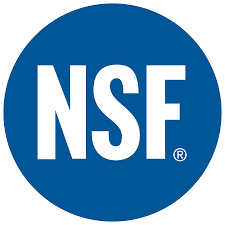
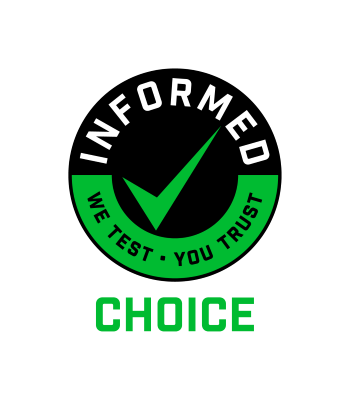
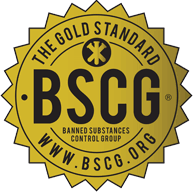
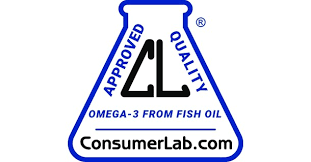
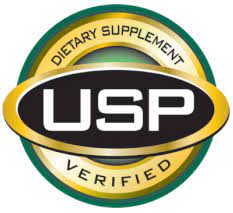
Even though not all of these certification programs test for banned substances, they are likely sufficient for most people. Athletes who participate in random drug testing (NCAA athletes, professional athletes, Olympic athletes, etc.) may want extra reassurance that they are not accidentally consuming a banned substance that may lead to a multi-year suspension or the loss of their athletic career. NSF and Informed Choice both launched certification programs with very robust testing programs designed specifically for athletes. If you see the NSF for Sport or Informed Sport seal, that means that every single batch of the supplement is third party tested for purity.
To make this easier for athletes, both NSF for Sport and Informed Sport have free mobile apps that an athlete can download and use to shop for safe supplements. The apps contain barcode scanners and the ability to quickly search for products and check batch numbers on products to ensure that they have been tested. An athlete who consumes a supplement that has been NSF for Sport or Informed Sport certified can be confident they will not fail a random drug test because of that supplement.
Figure 1.7 Third Party Certification Logos Designed for Athletes
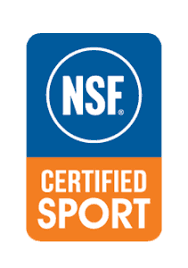
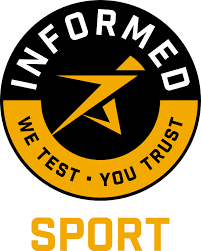
Media Attributions
- NSF Logo © NSF International is licensed under a All Rights Reserved license
- Informed Choice Logo © Informed Choice is licensed under a All Rights Reserved license
- BSCG Logo © BSCG is licensed under a All Rights Reserved license
- Consumer Lab Logo © ConsumerLab.com is licensed under a All Rights Reserved license
- USP Logo © United States Pharmacopeia is licensed under a All Rights Reserved license
- NSF Certified for Sport Logo © NSF for Sport is licensed under a All Rights Reserved license
- Informed Sport Logo © Informed Sport is licensed under a All Rights Reserved license
